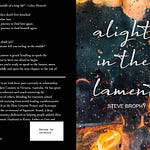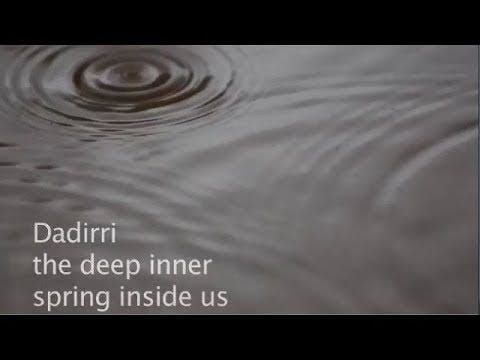Hello Hedge Schoolers,
A dear welcome to you wherever you are in the world. In the time of tumult we find ourselves in, I feel called to catch my thirsty mind and its desire to know and conquer.
Certainty. The eternal trickster. The calling card of fear. I see you everywhere. Social soapboxes where we scream the truth to all who will hear. And scream louder to those who won't. I find little solace in the eternal seeking. The perpetual treadmill of needing to trap, label and categorise has driven me mad in the past. The more sure I believe myself to be, the more doubtful I am. Certainty has been a cause of suffering.
"You suffer from uncertainty - and uncertainty is the nature of life. Certainty is
part of death. Be certain and you will be dead. Remain flowing, remain
uncertain, remain available to the changing circumstances, and you will remain
more and more alive."
Osho - What is Real Rebellion
The Conversation killer
One only needs to turn on the news or their favourite social media platform to gauge the divide in many areas of our lives. Take any issue and you will find sides picked, ideologies set, and backs against the wall. Comments, hashtags, subreddits, provide congregation fuel for gas lighting and insults. Dialogue is snuffed out early as troops with supporting beliefs rally to have your back. I find this really demoralising. So much noise. So hard to gain a clear signal. I want to see and hear but I find I'm lost in the mist of rhetoric and certainty.
So how do we fan the flames of discourse without burning each other?
Stubborn Contemplation of Opposing Truths
I am a big fan of Johann Wolfgang von Goethe. As a poet, a thinker, and as a human being. Goethe's wisdom can help provide a light here. He developed a thinking strategy that allowed “holding two opposing truths in two hands and walking forward” in stubborn contemplation. Two key elements to his method were:
A Beginner's mind
Being highly selective of the material that informs your judgment
I first came across, Shoshin, or beginners mind, from Shenryu Suzuki's brilliant book "Zen Mind, Beginner's Mind." According to Wikipedia, a beginner's mind is defined as "having an attitude of openness, eagerness, and lack of preconceptions when studying a subject, even when studying at an advanced level, just as a beginner would." I know that I don't know. Embracing the naivety of our first steps in a new area allows us to take in without shutting down possibilities. I know that I don't know is the widening of our gaze to take it all in without judgment. For Goethe, this allowed for contradictions to show up. These contradictions would then serve as salient guardrails without the emotive charge of choosing a position. It is not for or against but "that's interesting". In this approach, we create a subject/object shift. A technique that Harvard Professor Robert Kegan believes is necessary for the development of complex thinking. For complex situations demand complex thinking. We are not navigating past right or wrong. We are navigating past two truths. Right and right. We are seeking to move past Flatland thinking to elevated thinking. We are not solving problems, we are managing polarities. And so it is extremely important that we are selective of the material that informs our stubborn contemplation. There is always material to support a position. Strength, however, lies in our ability to hold both truths. A great example of this is the website, Allsides. Dedicated to reporting both sides of the fence as well as neutral territory, it is a great example of the third way appearing in the contradictions.
The third way
Emotions can often run high when our position is challenged. Having our truth, our worldview, called out can blind us with emotive responses. Polarised thinking is just that. Polarised. Skewed to suit our way of seeing the world. But as this fantastic article outlines, polarity management allows us to escape Flatland thinking and see the world from a new vantage point. Developed by Barry Johnson, Polarity management is a framework for helping us hold and honour the opposing truths of polarity. We get to see the best of both positions, while also flagging the blind spots which we have turned away from. I've created an introductory video on Polarity mapping which will give you a quick overview of the technique. This is the mental model I use the most as it can be applied to any situation. If you are keen to learn about more of the mental models I use, you can check out this online course I created a little while back. Lots of goodies in there to broaden our scope of the world.
Polarity mapping allows for a third way to emerge. It is the forward step of stubborn contemplation. We take the best of both positions and together as a united force, we co-create a third way forward. We create guardrails for positive progress and list warning signs for backward slipping. We come together, stronger and more tolerant.
“Unity is plural at minimum of two.” - Buckminster Fuller
Till next week,
Steve
References
The Critical Path - Buckminster Fuller
Polarity Management: Identifying and Managing Unsolvable Problems - Barry Johnson
Escape From Flatland Using Polarity Management to Coach Organizational Leaders From a Higher Perspective - Beach Joyce
The Roots of a Science of Consciousness in Hermetic Alchemy - Dennis William Hauck, Ph.D
Allsides - Unbiased balanced news
Zen Mind, Beginner's Mind - Shenryu Suzuki
In Over Our Heads - Robert Kegan
What is Real Rebellion - Osho













Share this post